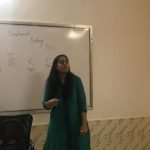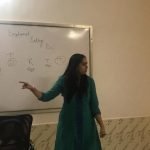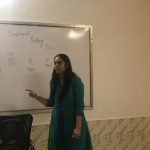Emotional eating was a talk delivered by speaker Rimika Chawla who is a therapist and life coach at the Institute of Clinical Hypnosis and Related Sciences. The talk was delivered on the 24th of May 2019 at our ICHARS centre.
Objectives : Many a times we feel like eating when under the influence of strong emotions and don’t even understand the reason why ? This 2-hour talk had strategies to help you deal with emotional eating.
- Recognise emotional eating.
- How emotions and eating are related.
- Identifying your emotional hunger pangs.
- Understanding the cycle of emotional eating.
- Manage your emotions in turn managing emotional eating.
Target audience : Participants consisted of adults and young adults with a non-psychology background.
Outcome : The outcomes that participants gained from the talk were as follows:
- Understanding what is meant by emotional eating / stress eating and not confusing it for overeating.
- Knowing how to understand the relation between emotions and eating.
- Being able to identify your hunger pangs.
- Understanding how emotions lead to eating in a continuous cycle.
- Being able to manage your emotions so that once you are emotionally okay you don’t fall in the emotional eating cycle. .
Description : The participants and the speaker introduced themselves and then the talk began by explaining what is emotional eating.
Participants were explained what is physical eating and emotional eating and the difference between physical and emotional eating.
Participants were also told about why do we resort to food when we are under the influence of emotions. The relationship between emotions and food was also explained.
Participants were given a questionnaire which they had to give a yes or no answer, to understand whether they do emotional eating or not depending on the score they get.
Participants were introduced to a technique where made to imagine an event where the emotionally ate for the first time and then know the thought behind it.
Participants were explained about the emotional eating loop and once you enter this loop it is almost impossible to exit it.
Participants were thought of the if then technique where they identified the thought and then thought of a counter thought which could stop them from emotional eating then put it into the if then statement and then with the power of repetition how the thought behind emotional eating changes.
Participants along with if then were also explained other ways of dealing with emotional eating.
Closure : The talk ended with a question answer session where in the questions that the participants had regarding the topics in the talk were answered. Feedback was taken from the participants regarding the talk.


